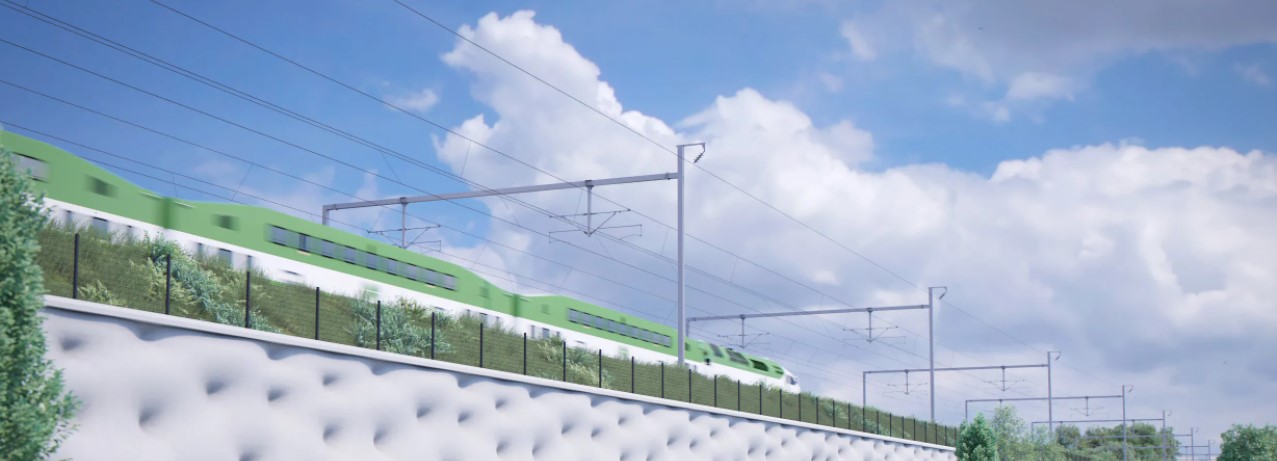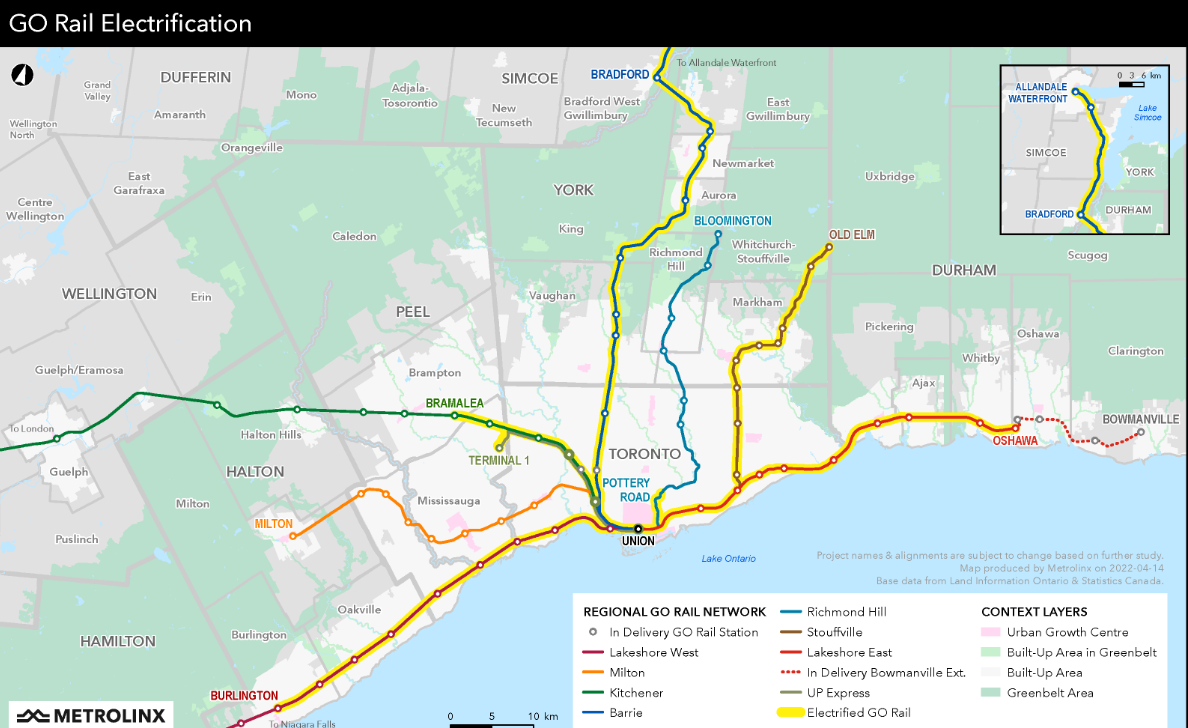
The province is moving forward with plans to electrify GO transit service along the Lakeshore West line through Oakville and into Burlington.
That could eventually see trains run every 15 minutes at speeds up to 140 km/h past Kerr Street, where Metrolinx recently walked away from a decade-old plan to build a track underpass.
Kerr Street underpass project derailed
Electrification of the busy Lakeshore West route is a tiny element of a multi-billion-dollar contract recently awarded to ONxpress Transportation Partners.
The province announced that the deal would “modernize and transform the GO rail network and bring frequent, two-way, all-day service” across five core rail corridors in the Greater Golden Horseshoe region.
It will also pass off responsibility for operations and maintenance of the GO rail system to ONxpress through a design, build, operate and maintain (DBOM) contract model.
The deal will create thousands of new jobs, add more than 200 km of new track and electrify over 600 km of track, according to the April 19 press release.
It will also introduce a new electric train fleet that could reach speeds of 140 km per hour.
Kerr Street project is a necessity.
Electrification will occur through a system of overhead wires that could run above the current Kerr Street level crossing.
But in a meeting with the town, Metrolinx President and CEO Phil Verster acknowledged that the underpass is a necessity for electrification to move forward, said Mayor Rob Burton.
"We’re working with them as hard as we can to help them revise and reconsider and resume,” said Burton. "This (Kerr Street) project has to get on track if the electrification project wants to stay on track."
"This (Kerr Street) project has to get on track if the electrification project wants to stay on track."
The contract with ONexpress will launch a 24-month development phase to begin design, schedule optimization and initial construction work.
According to the press release, that will include delivery of overhead electrification, a new electric train fleet, upgraded train control systems, and expanded tracks and structures along the corridors.
Construction is expected to start in 2023, with new service beginning as early as 2025.
Better local air quality
Eric Miller, a civil engineer and director of the University of Toronto’s Transportation Research Institute, said the contract would allow the province to finally move forward with expansion plans that have been in place since 2018.
“We desperately need improved transit services in this region, and GO rail is certainly a significant component of that problem for the longer distance regional travel,” he said.
Miller said electrification of the service would not only reduce greenhouse gas emissions but also cut local air pollution from diesel fumes.
He added that electric trains can accelerate more quickly and run at higher speeds than diesel, making running a higher frequency service more economical.
“That’s huge in terms of providing additional capacity to move people in both directions throughout the day so that transit becomes a real alternative for more people, relative to the car,” Miller said.
The newly awarded contract makes ONxpress responsible for expansion and improvement plans, as well as operating and crewing the trains, maintaining the fleet and managing facilities, train control and electrification systems.
Public-private partnerships are fairly typical for the operation of large transit systems worldwide, said Miller, who added that Bombardier has previously been responsible for many elements of the GO operation.
“The devil is always in the details,” he said. “Is it truly cost-effective, and what sort of oversight, regulation and management do you impose on it?”
ONxpress is a consortium comprised of Canadian infrastructure company Aecon, FCC Construcción S.A., Deutsche Bahn International Operations GmbH, and Alstom S.A.
In a press release, Aecon said the company has the expertise to deliver the complex multi-billion-dollar infrastructure project.
"We are proud to play a key role in one of the largest infrastructure investments in Canada – while stimulating the economy, creating well-paying jobs, and more efficiently connecting people and businesses," said Steve Nackan, executive vice president of the Aecon Group.
A spokesperson for the Ministry of Transportation said the initial design and early works involved in the development phase of the contract are estimated to be worth about $1.6 billion. Through the design work between now and 2024, the final contractual schedule and price will be finalized.
